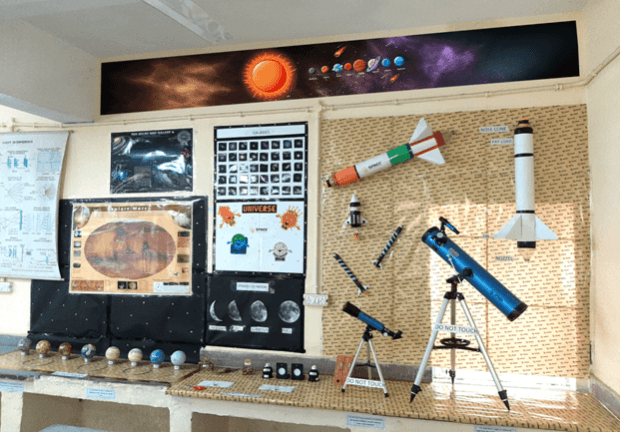The International Astronomical Search Collaboration has given "Provisional Status" to eight asteroids discovered by sixteen students from Jawahar Navodaya Vidyalayas as part of the Khagolshala Asteroid Search Campaign 2021.
The Khagolshala Asteroid Search Campaign (KASC) teaches Jawahar Navodaya Vidyalaya students on how to spot asteroids. The campaign is a collaboration between the Government of India's Office of Principal Scientific Adviser and the SPACE Foundation.
Hardin-Simmons University's International Astronomical Search Collaboration (IASC) expressed their best wishes, confirming the provisional discoveries. While it will be years until the asteroids are documented and named by the discoverer, the successful discovery and provisional designation of eight asteroids is a significant achievement for young students. Students will have numerous opportunities to interact with space scientists, astronomers, and astronauts throughout the process, said a statement.

The Process
The steps from preliminary detection through asteroid naming are:
Preliminary detection: The discovery of a new asteroid for the first time.
Provisional status: Within the following 7-10 days, the asteroid must be spotted again. If that's the case, the Minor Planet Center downgrades the detection to provisional (MPC).
Asteroid detections with provisional status are kept in the MPC database for many years until a sufficient number of observations have been collected to fully define the orbit. The asteroid is then numbered and catalogued by the International Astronomical Union, which normally takes 6-10 years.
Asteroid naming: Citizen scientists who discover numbered asteroids can give them names.
The 'PANSTARRS' (The Panoramic Survey Telescope and Rapid Response System Telescope) in Hawaii provides students with real-time data. They have access to these photographs and have been trained to spot asteroids using powerful data analytics. This results in a priceless real-time research experience. The campaign supports the Jet Propulsion Laboratory's NASA Near-Earth Object (NEO) Program (Pasadena, CA).
List of the provisional discoverers in KASC 2021:
- 2021 BA11 P11cbE7 B. Dash, S. Singh JNV Anuppur -1 India Provisional 01/16/21 NEH5432
- 2021 AW20 P11bLbH A. Tripathi, B. Dutta JNV Anuppur -2 India Provisional 01/09/21 SBR0052
- 2021 6 P11dgIS I. Shukla JNV Sonebhadra India Provisional 02/12/21 SSI1234
- CA25 P11cCXf S. Singh, A. Sharda Team JNV Una - 1 India Provisional 02/07/21 CVR2802
- 2021 CF30 P11cCXs P. Nandan, H. Sameer Team L. Brothers India Provisional 02/07/21 PRY2021
- 2021 CB18 P11cJ2z A. Kumar, S. Kumar Team Curious Mind India Provisional 02/08/21 AKS9878
- 2021 CY25 P11dhTD S. Kurre, A. Sahu Team Shubhash India Provisional 02/12/21 OOM0000
- 2021 CS23 P11dgJ4 L. Gowda Team Aryabhatta - 7 India Provisional 02/12/21 JNV0010
The SPACE Foundation is a non-profit organisation dedicated to advancing science and space Foundation was founded in 2001 with the goal of popularizing science and instilling a scientific temperament in the general public, particularly schoolchildren in India.
In India, SPACE is striving to develop citizen scientists through a variety of science and astronomy education, as well as innovation projects. The greater purpose of these programmes is to instil a scientific temperament in society, particularly among adolescents.
The Khagolshala Asteroids Search Campaign (KASC) is a project that aims to find asteroids in Khagolshala. It is part of the international student research programme that has gotten students involved in asteroids searches.
Students are given high-quality astronomical data sets to analyse and identify asteroids with. Students use software to examine the data, which leads to possible findings.NASA and the Jet Propulsion Lab are compiling data on Near-Earth Objects (NEOs) based on these observations (JPL).
So far, Khagolshala Astronomy and Space Education Labs (ASELs) have been constructed in 20 Jawahar Navodaya Vidyalayas. Space India's goal is to make the country's younger population interested in astronomy and space sciences, as well as its application, exploration, innovation, and research. Space India's team engages students in the universe through experimentation, observation, and analysis.

















